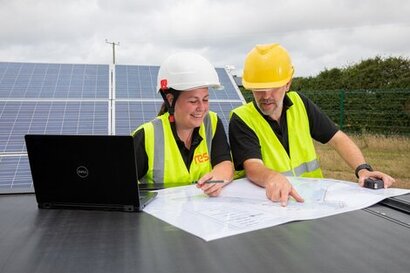
The scheme was given the go-ahead after the Council’s planning committee voted to approve the application, in line with the case officer’s recommendation.
The design will enable continued agricultural use of the land in the form of sheep farming and includes planting of new native trees and hedgerows. These measures will help to significantly enhance the biodiversity of the site, in addition to other actions such as wildflower meadow creation, and the installation of bird and bat boxes, hedgehog houses, reptile hibernacula and invertebrate hotels.
Feedback from the local community and stakeholders during the consultation stage helped to positively shape the proposal, resulting in changes being made to the design.
“We’re delighted to start the year with planning consent for Varley Solar Farm, a project that will provide clean, low cost electricity for consumers and strengthen the UK’s energy security” said Bert Devossel, Development Project Manager at RES. “The consultation process has allowed us to identify and respond to local issues and concerns, which has ultimately resulted in the best design for the scheme. As well as taking account of the well-used Public Rights of Way (PRoW) network, feedback from the local community told us we had to look again at all possible delivery route options. We altered our plans to reflect this by creating a short bypass off the public roads and think the approved plans provide a pragmatic solution to those original concerns.”
Once operational, Varley Solar Farm will be capable of producing up to 25 MW of clean energy every year, the equivalent of supplying nearly 10,000 houses annually, as well as preventing around 600,000 tonnes of CO2 emissions over its 40 years lifetime, compared to fossil fuel.
For additional information:

